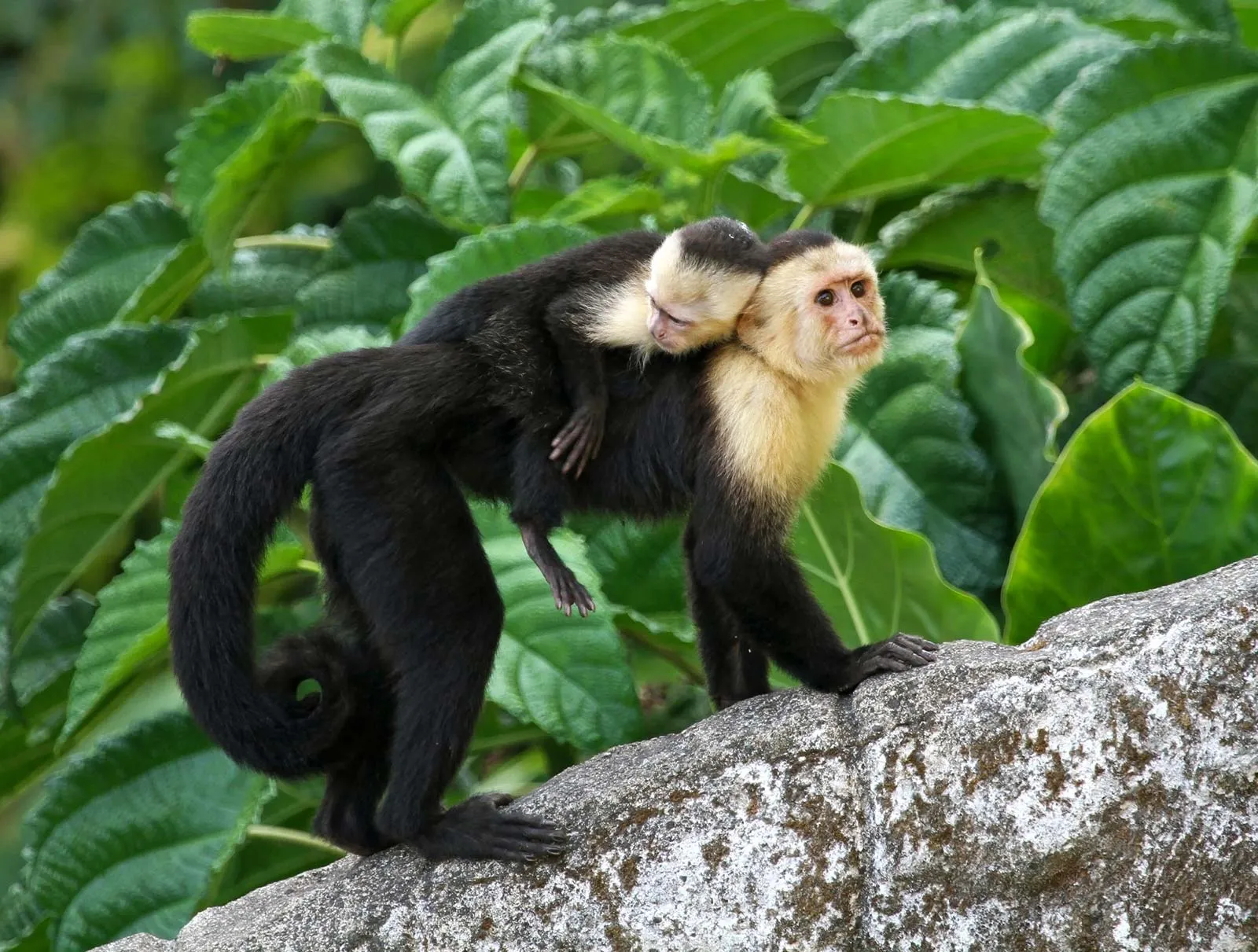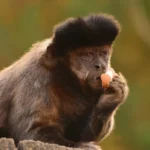Step into the captivating world of capuchin monkeys and embark on an intriguing journey to uncover the secrets behind their impressive lifespans. From their remarkable adaptability in the wild to the benefits and challenges of life under human care, we’ll delve into the factors that influence their longevity. Get ready to be astonished as we unveil the fascinating elements that shape these primates’ remarkable journeys through life!
Lifespan of Capuchin Monkeys
Known for their intelligence and playful nature, capuchin monkeys exhibit surprising longevity, especially in controlled environments. These fascinating creatures typically live longer than many other monkey species, a testament to their resilience and adaptability. Let’s explore the factors that contribute to their lifespan in different settings.
Wild vs. Captivity: A Tale of Two Lifespans
In the wild, capuchin monkeys face a constant battle for survival. Predators like jaguars and snakes, competition for food, and the ever-present threat of disease create a challenging environment. These factors significantly impact their lifespan, which averages between 15 to 25 years.
However, life takes a dramatic turn for capuchin monkeys living in zoos or sanctuaries. These fortunate primates enjoy a life of privilege, with regular veterinary checkups, a balanced diet, and protection from predators. This secure and nurturing environment allows them to thrive, often reaching an impressive age of 45 years – almost double their lifespan in the wild!
| Environment | Average Lifespan |
|---|---|
| Wild | 15-25 years |
| Captivity | Up to 45 years |
The Benefits of a Sheltered Life
The extended lifespan of captive capuchin monkeys isn’t solely due to the absence of danger and access to nutritious food. Just like humans, monkeys are susceptible to various health problems. In the wild, a simple infection or injury can quickly become life-threatening. However, in a controlled environment, these issues are swiftly identified and treated, significantly increasing their chances of living a long and healthy life.
The Importance of Enrichment
While captivity offers numerous advantages, it’s essential to remember that capuchin monkeys are highly intelligent and social animals. In their natural habitat, they spend their days exploring, foraging, and engaging in complex social interactions. Captivity can sometimes lead to boredom and limited opportunities for these natural behaviors.
Therefore, providing enriching environments and stimulating activities is crucial for captive capuchins. Puzzle feeders, interactive games, and ample space for social interaction are vital to ensure they not only survive but truly thrive.
How Long Do Capuchin Monkeys Live In The Wild?
These playful primates, celebrated for their intelligence and social prowess, navigate a world fraught with challenges. In their natural habitat, a capuchin monkey’s lifespan typically ranges from 15 to 25 years. This duration, though impressive, reflects the constant threats they encounter.
Predation poses a significant risk, with jaguars, eagles, and snakes constantly on the hunt. Additionally, they must compete for resources like food and territory, while facing the ever-present dangers of disease and harsh weather conditions. These factors contribute to a shorter lifespan compared to their captive counterparts.
The stark contrast between the lifespans of wild and captive capuchins underscores the impact of environmental factors and the importance of conservation efforts. Protecting their natural habitats and ensuring their well-being in the wild is essential for these remarkable creatures to thrive for generations to come.
Capuchin Monkey Lifespan in Captivity: What’s The Difference?
The difference in lifespan between wild and captive capuchin monkeys is remarkable. While their wild counterparts live for an average of 15-25 years, captive capuchins can reach an astonishing 45-50 years. This significant difference highlights the profound impact of a controlled environment on their longevity.
Several factors contribute to this extended lifespan:
- Diet: Captive capuchins receive a carefully balanced and nutritious diet, ensuring they receive all the essential vitamins and minerals for optimal health. This contrasts sharply with the often unpredictable and seasonally fluctuating food sources in the wild.
- Healthcare: Regular veterinary care plays a crucial role in the longevity of captive capuchins. They receive routine checkups, vaccinations, and immediate medical attention when needed, effectively preventing and treating illnesses that could be fatal in the wild.
- Habitat: Captive environments provide safety and comfort, shielding them from predators, harsh weather conditions, and competition for resources. This security reduces stress and allows them to thrive.
- Social Relationships: In captivity, capuchin monkeys often form strong bonds with their human caretakers and other captive animals. These social connections contribute to their overall well-being and can positively impact their lifespan.
- Cognitive Abilities: Their intelligence and problem-solving skills, honed through enrichment activities, contribute to their adaptability and ability to thrive in captive environments.
The absence of predators and environmental hazards, coupled with meticulous care and attention, allows captive capuchin monkeys to live longer and healthier lives. Their extended lifespan is a testament to the dedication of zoos, sanctuaries, and responsible private owners who understand and cater to their unique needs.
Factors That Influence Capuchin Monkey Lifespan
While environment plays a significant role, several other factors intricately influence the lifespan of capuchin monkeys:
Genetics and Health
Just like in humans, genetics plays a crucial role in a capuchin monkey’s overall health and longevity. Some species are predisposed to a more robust immune system or a lower risk of certain diseases, giving them a head start in the game of life. However, unexpected illnesses, infections, or accidents can significantly impact their lifespan, regardless of their genetic makeup.
Diet and Environment
The adage “you are what you eat” rings true for capuchin monkeys. Their diet, primarily consisting of fruits, insects, and leafy greens, provides essential nutrients for survival. However, the quality and availability of food sources vary greatly depending on their habitat and the species.
Deforestation, climate change, and pollution pose significant threats to their food security. These environmental changes disrupt ecosystems, reduce biodiversity, and introduce new challenges, ultimately impacting their lifespan.
Social Integration
Capuchin monkeys are highly social animals, thriving in tightly-knit groups. Interestingly, research suggests that strong social bonds, particularly among females, correlate with increased lifespan. This phenomenon highlights the importance of social support, cooperation, and shared resources for survival.
Brains Over Brawn
Capuchin monkeys are renowned for their intelligence, often dubbed the problem-solvers of the primate world. They display remarkable cognitive abilities, using tools, solving puzzles, and even exhibiting complex communication skills. These cognitive traits enhance their adaptability, resourcefulness, and ability to navigate challenging situations, ultimately increasing their chances of survival.
Understanding the Bigger Picture
A capuchin monkey’s lifespan isn’t determined by a single factor but rather an intricate interplay of genetics, environment, social dynamics, and cognitive abilities. By understanding these factors, we gain a deeper appreciation for these fascinating creatures and can contribute to their conservation. Furthermore, studying capuchin monkeys provides valuable insights into aging and longevity, potentially benefiting our understanding of human health and lifespan as well.
The most widespread of all capuchin species is the black capuchin monkey. In contrast, the weeper capuchin monkey is restricted to only a few isolated populations in northeastern Brazil.










Comments are closed.